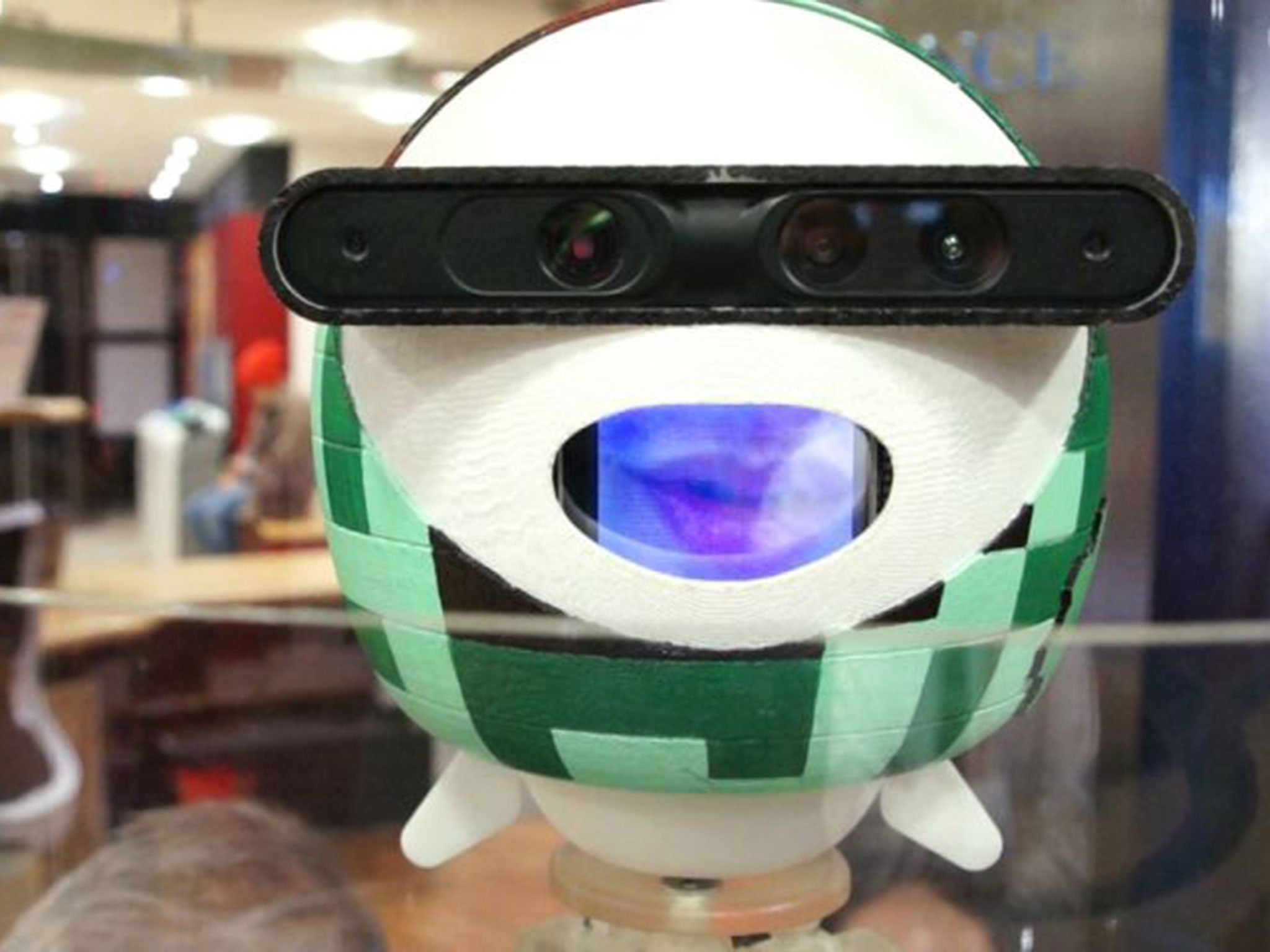Kinba the robot lands job on reception at King's College
Kinba's main role is to provide information on how humans react with robots to advance the development of social automated beings

Kinba has only just started on the front desk of King’s College but the students are already in love with their new receptionist who can see, hear and have a stab at speaking.
Under normal circumstances that would be unremarkable – but Kinba is a robot.
Kinba, who has yet to be assigned a gender, took up its new post last week alongside the London university’s existing – human – receptionist Camilla Templing at its building on the Strand.
“Kinba’s generated a real buzz of excitement about the place, to see it moving and speaking. People are coming and taking pictures and talking to it,” Ms Templing says.
Part of the fun is that Kinba is a work-in-progress in the extremely complex, fledgling but rapidly developing world of social robots.
“You can never quite tell what it’s going to come out with next when someone asks it a question. This morning someone asked it what time it was and it said that it was ‘time to get wacky’ - which I thought was quite fun to hear on a Friday,” she added.

Kinba is about a foot tall with a roughly human-sized head.
She was developed by students and faculty at King’s College in London and is a pretty impressive robot with 3D colour vision that is able to recognise faces as well as speech recognition and some limited speech.
But the main purpose of Kinba is to provide information on how humans react with robots to advance the development of social automated beings.
“Robots are a bit of a scary thing for a lot of people – partly because they are afraid of them taking their jobs,” said Dr Matthew Howard of King’s College, who is leading the project with his colleague Dr Hongbin Liu.
“This gives us a unique platform where a robot can interact with ordinary people. We can find out what things make them comfortable and uncomfortable and – with a human receptionist sitting by – will they always choose the human over the robot? Will the robot always just be a novelty?” said Dr Howard.
Social robots are starting to creep in around the edges of society but are still expensive and rare. But Dr Howard predicts that within five years they will have become considerably more widespread.
Eventually we could see social robots performing all sorts of functions, such as cooking meals, and changing sheets in hospital beds, he says.
Join our commenting forum
Join thought-provoking conversations, follow other Independent readers and see their replies
Comments
Bookmark popover
Removed from bookmarks